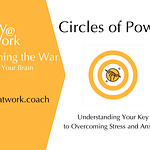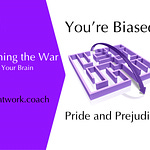What do they Know? Let's start with asking what do your audience already know about you and your topic? There are two extreme dangers here: 1. Assumptions and 2. The Curse of Knowledge You see I carry a curse. A curse of knowledge. Just as you do: The Curse of Knowledge! I attended a networking event recently where someone was sharing about Bitcoin.
"Bitcoin is a type of digital currency in which encryption techniques are used in a blockchain to regulate the generation of units of currency and verify the transfer of funds, operating independently of a central bank."
Yes, but what is it? I don't fully understand Bitcoin. I don't get how you "mine" them and I don't appreciate how they can be worth more than $10,000. And I'm a geek! I feel utterly stupid when someone who does know, speaks down to me as if I really should know and it turns into a crushing sense of hopelessness.And that's not a great place for your audience to be. jill and colleagues peering into empty skull.png When someone assumes that you should know something and you just do not. They look at you as if peering into your emptyheadedness with disdain. Sure, I'm biased and think of Bitcoin as eTulips and a bubble that will hurt a lot of innocent people, but I'll come back to bias when we discuss the audience Opinion. I know quite a lot. But I don't know Bitcoin, Blockchain, Etherium and now I've heard that there's one based on organic bananas. My knowledge may be similar or utterly different to your own. You have your jargon, and I have mine. The only time we have a real problem is when my jargon makes no sense to you. When I assume that something I know is common knowledge. Tappers and Listeners Here's a terrific little experiment that you can do later today with a friend or family member to truly understand the curse of knowledge. Firstly I shall tap out a very well known song - this of course only works well if you are listening to the podcast, if you're reading this, it doesn't work :-) I'll tap out this well known song and you guess what it is. Easy right? Wrong. If you were to ask someone to do this and estimate how quickly people would guess the song title correctly, you might guess at the commonly agreed 20 or 30 seconds. And the real answer is that roughly one person in 20 will guess correctly and that after 3 repeats. - and those are usually "lucky guesses". So, you try this with a friend or colleague. Tap out "Happy Birthday". Oh, well now, of course, you recognise the tapping. It's easy now. Because now, the tune is humming in your head AND you hear the tapping in time. Previously, you only heard tapping. The problem is that I cannot unknow what I know - it is humming along in my head as I share. I cannot remember what it is like to not know what I know. And of course, I think what I know is easy. It would have to be easy if I know it. But maybe, just maybe, it is not as easy or obvious as I think that it is. Just like Happy Birthday ain't so obvious when all you hear are tap tap tap tap tap tap. (Interesting by the way, now that you know that it is Happy Birthday, you heard it immediately!) And when someone does not know something (especially something that colleagues appear to know), they may feel intimidated and that may just shut down their attention and choose the ostrich manoeveur, or worse, they may get defensive and disrupt your presentation by heckling.
To avoid making bad assumptions and the curse of knowledge, you must find out what your audience already knows. And a terrific way to do that is to ask questions.















Understand Me 2 - What do the Know?